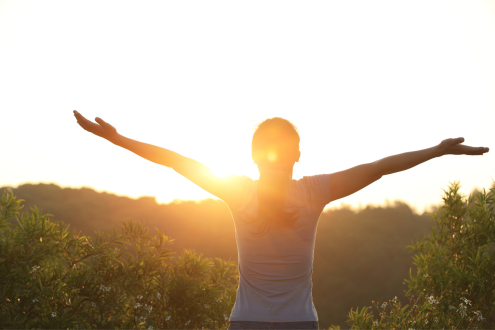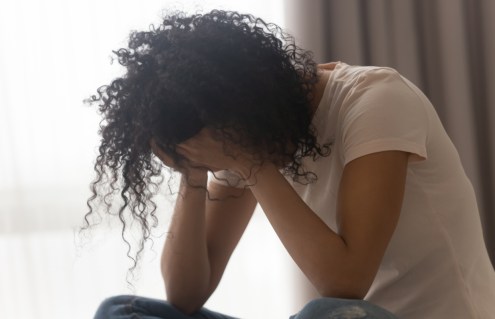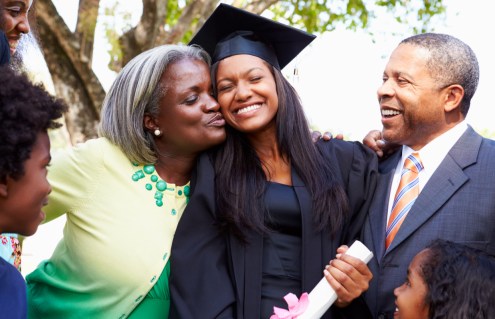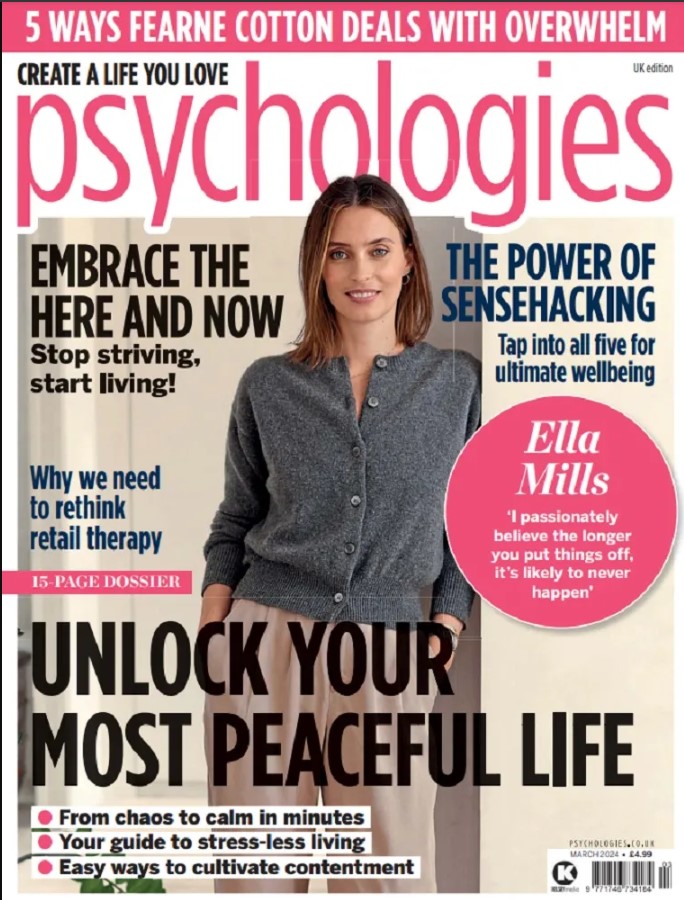I’ve been feeling guilty…
...about how little I can do to help....
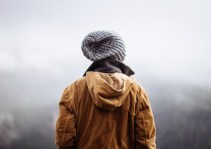
My guilt
I’ve been feeling such guilt. I’m not doing anything wrong. I’m staying home, social distancing, not shopping often, I’m not doing anything bad.
I’m just not doing anything useful.
My sister is in the NHS and really is in the thick of it and I see agricultural workers around here doing their bit to feed the country and meanwhile I am doing yoga, writing, walking, gardening, reading, phoning. So when my sister’s children/grandchildren say ‘What did you do during the great pandemic of 2020’, she will have tales to tell and I will have just these words and the others to show.
I feel so powerless, helpless for there isn’t anything apart from do what I am doing. We’re in the Easter School Holidays now which feel so very mythical, it is too normal a concept for these times. Usually there would be no expectation of me being in contact with kids or work at all. But even in the weeks before, my students, all sixth form, had drifted out of touch, into a cyber void. I am useless to them it seems.
I feel guilty for being healthy and well, for having lain in the sun yesterday and read. Guilty for having a garden, for living in a small village, for not having to queue at shops like so many of my London friends are telling me is their experience. When we walk there is space, we are not jostling in busy city parks for our 2 meters of space.
And I could harden myself and shrug that this is all because of decisions I made; to be a teacher, to move the country, to live within my means. And that smug, self-righteousness would be a front, for actually I feel like luck has played such a part. Why is it fair for us to be able to live much more safely at this time, than the people in high rise blocks with, no money and no support?
Is this survivor’s guilt?
The words ‘survivor’s guilt’ have hovered in my awareness for a few days and I have shrugged them away for I have not suffered anything terrible to survive from. But today I succumbed and researched and found that it fits.
‘Survivor’s guilt is when a person has feelings of guilt because they survived a life-threatening situation when others did not.’ (Medical News Today).
This is a life threatening position we are experiencing and so far me and mine are surviving.
‘Feeling guilty that you survived when someone else died and that you do not deserve to live when another person did not. In some cases, this includes feeling you could have done more to save another person, in other cases it is feeling guilty that another person died saving you.’ (What’s Your Grief)
Yes, I do feel guilty that I can not do more and I also feel guilty that people like my sister and all the NHS staff are putting themselves and their families at risk to save us while I sit in my kitchen and type this.
‘While survivor’s guilt was originally used to describe feelings that survivors of the Holocaust experienced, it has also been applied to a number of people and situations since that time.
Individuals who lived through the AIDS epidemic have described feelings of guilt related to their own survival while others, including friends or family, died.
Survivors of other illnesses may also feel a sense of guilt when they recover, but other friends and acquaintances do not.’ (Very Well Mind)
Yes, that’s what this is. It is like the Aids epidemic, and this is an illness which so far has not touched my life, we are surviving when others are not.
So what do you DO with survivor’s guilt?
Of course the first thing, which I know from all the other work I do on emotions is to just name it and let it be. To express it and own it and understand that it is a normal response to abnormal circumstances. It doesn’t make me neurotic, it makes me human.
When I feel the guilt when another person falls ill or dies, when my sister goes off to work while I sit snug at home, I name the emotion and witness it in my body. For me it sits in my chest and stomach and my head bows in humility when I feel it. When I let it be, it passes through.
Humility has not been a sexy word in our times, instead we have lauded celebrity and grandiosity and yet, when my head bows, it allows me to humble myself to the forces of nature and chance. It forces me to sit with my powerlessness, my smallness, my insignificance, not just in the face of this, but always.
And that it no bad thing, for sometimes I get grandiose, I think that what I want and need matters more than it does. I allow myself to delude myself into thinking I am the designer of my own destiny and this time is reminding me how at the very least, it is a dance between me and fate or chance or life, whatever your name for it is.
Survivor’s guilt seems to me to be an acknowledgement of empathy and connectivity. How can I not feel for the mother who lost her child, when I am a mother too. I don’t know what it is to lose a mother to covid, but I know what it is to lose a mother and that grief unites us although everyone experiences it differently. I don’t know what it is to lose a lover to covid, but I have survived my own grief at a lover’s death so when I hear about your grief, it connects you to me.
Survivor’s guilt reminds me of the preciousness of what I have; my health, food, a garden, so far enough money to pay the bills. It makes me grateful, again humbled for the magnificence of all my blessings. It is the antidote to ‘more’. It brings me to the realisation of the abundance that was always here but which I haven’t always seen.
Survivor’s guilt keeps me alert; keeps me washing my hands and socially distancing.
Survivor’s guilt is taking us back to basics. When the government decrees we are all allowed on form of exercise a day, it sends a powerful message that health matters and this needs to be taken forward with us when we come out of hibernation. Since my breakdown over 10 years ago, I have prioritised health and well-being, but so many people felt that they haven’t had the time and energy for a daily walk. I hope this new habit sticks for us all.
Survivor’s guilt is our door to grief. Grief at all we have lost which the poet Clare Best describes so beautifully.
‘That’s before we start on the big grey grief-elephant in the room: the lives the virus has already taken, the lives the virus will take or transform over coming weeks and months’
For we are grieving, if not for people we love, we are grieving for the life we left, the people we work with, the structure to our days, our sense of agency and identity, our income, our way of life, our coffee shops and holidays.
Anticipatory grief
We are also experiencing anticipatory grief which I first learned about when I volunteered at a children’s hospice.
‘It’s common for grief to strike in advance of an impending loss. For example, if someone close to you is diagnosed with a terminal illness, you may begin to mourn in expectation of what lies ahead. Anticipatory grief can be difficult to deal with, as you may want to stay strong or appear positive so that you can support the person who is ill. Even though it’s very difficult, this extended grieving process hopefully gives you time to say goodbye to your loved one and prepare for the future.’ (Which)
We are all anticipating grief, but we do not know where it will hit, when it will come, who it will be. We are all trying to stay positive, supportive. There are so many people in our lives we could lose that it seems impossible to say our deathbed words, seems inappropriate and weird.
But maybe we should. Maybe now more than ever we need to tell people what they have meant to us, what we will remember, what we love. For none of us know which ones of us will make it out of here alive.
And we need to get our shit together. To write that will, to list our passwords and bank accounts so those who would be left to sort out the mess amidst their grief do not, at least, have to worry about paperwork as well as their loss.
‘Anticipatory grief provides an opportunity for personal growth at the end of life, a way to find meaning and closure. For families, this period is also an opportunity to find closure, to reconcile differences, and to give and grant forgiveness’ (VeryWellHealth)
Seeking and granting forgiveness is never a bad thing, and now, when we do not know what will come next, is exactly the time to do it.
And yes, this is time to find meaning, to question how we have been living, to think about what matters most.
On being human
All of this is normal. It is normal to feel guilty about surviving when others are not. It is understandable if we are crying, angry, confused irritable because not only are we experiencing many losses already, but we are anticipating loss.
What helps is naming and acknowledging all this; everything; our powerlessness, our small insignificance, our fragility, our guilt, our grief, for in this claiming of our own experience, we can deeply connect with each other and with the nature of what it is to live.
Julie x
If you want to find out more about emotions you can sign up to my free course made with Psychologies Magazine or get in touch for coaching. Find out more about both here.
Julie Leoni
Coach, author, podcaster, facilitator, Yoga and psychology teacher, learner
I have over 30 years of experience and qualification in various therapeutic and meditation/mindfulness based approaches. I work with change. Some changes we chose, others happen to us. Sometimes we know we want to change but don't know how. Sometimes we don't want to change but external events or people are forcing us to change. The menopause, children leaving home, the end of a relationship or job, becoming a parent, coming out, bereavement are just some of the personal changes I support people with. I also work with people who want to make changes to their life and wider world in response to social issues such as Covid, the climate crisis and racial, sexual and gender inequalities. Times are changing whether we want them to or not and we need to be nimble, agile, curious and open in order to part of the new story emerging. Work with me to get clear on what matters to you, what makes your heart sing and what kind of future you want for yourself and those you love. It is possible to live differently, get in touch to explore how.
